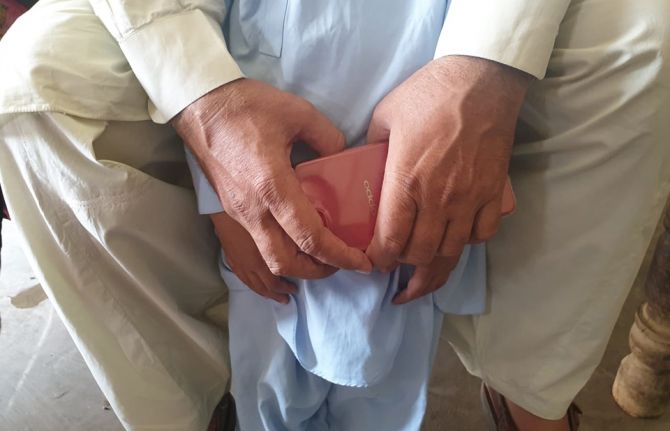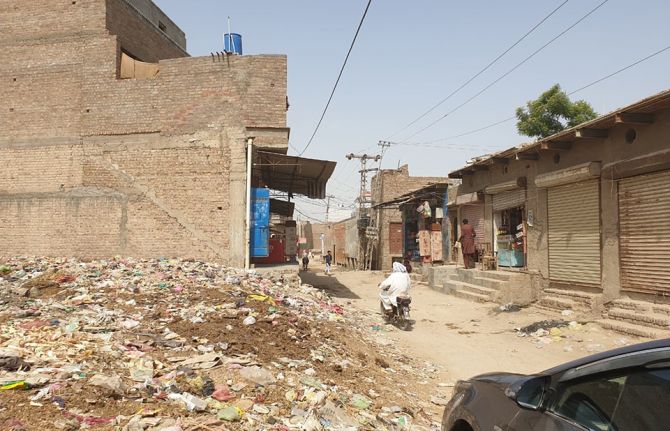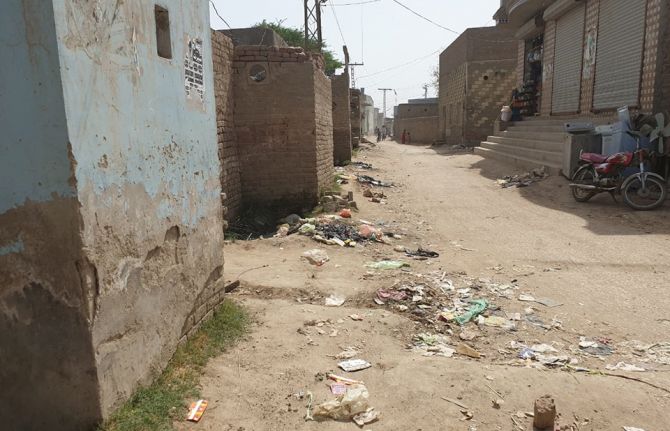



Feature Story
Responding to the HIV outbreak in Larkana
11 June 2019
11 June 2019 11 June 2019Ahmed (not his real name) is worried as he tells his story: his five-year old son Mukhtar has been newly diagnosed with HIV. Ahmed, a medical officer working in a local hospital in the city of Ratodero in southeast Pakistan, had taken Mukhtar to be tested for HIV when the local media began warning of an increase in HIV cases among children living in his area of Sindh Province.
At the end of April, following warnings from a medical practitioner in Ratodero that a number of children under his care had tested positive for HIV in a short span of time, health officials expanded HIV screening in Larkana District. After more than six weeks of testing, more than 750 people have been newly diagnosed with HIV, with children accounting for 80% of the confirmed cases. Ahmed’s son is one of them. Before the outbreak, just over 1000 children were living with HIV in the entire country. Although further investigations are being conducted to uncover the cause of the outbreak, experts say that poor infection control practices including a lack of sterilization and the re-use of syringes and drips, could be a factor.
Mukhtar sits quietly in his father’s lap, as Ahmed continues to tell his story.
“When I told my wife, she started to ask me questions, where did this come from, why has this happened to my child and will my child survive.” Anxiety and fear have grown in Ahmed’s family and across the province. Every day, hundreds of parents line up outside the screening sites and pour into hospitals and clinics to get their children tested. Many of them have little understanding of HIV.
As an immediate response to the outbreak, the Sindh AIDS Control Programme (SACP) has been carrying out a major testing campaign by expanding HIV testing hubs and establishing a new HIV testing facility at the Taluka Headquarter Hospital in Ratodero. These measures have enabled more than 26 000 people to be tested, mostly children. Sindh’s Ministry of Health has also strengthened its efforts to prevent unlicensed and informal medical practices from operating and, as a result, 900 health clinics and unlicensed blood banks have been closed.
To ensure immediate access to HIV treatment, a new antiretroviral treatment clinic for children has been established in Larkana and additional health care providers have been deployed. These efforts are saving lives, as 356 people, including Ahmed’s son, have already been enrolled in HIV care services and started antiretroviral therapy. “I was scared but then my child got the treatment he needed,” says Ahmed. “Now we need to ensure that ARV treatment will continue to be available in our district”.
The United Nations in Pakistan is working closely with the federal and provincial governments to provide on-site technical support to help local partners effectively respond to the HIV outbreak and reduce the impact of the crisis. With the full participation of the World Health Organization, UNICEF, UNAIDS, UNFPA and other UN agencies, the United Nations is providing support for the implementation of the “Sindh HIV Outbreak Response Plan, May 2019-Apr 2020”, which includes short-term and long-term steps to identify the causes of the HIV outbreak, address them and strengthen the continuum of HIV prevention, treatment, care and support services.
A team comprised of SACP and other national partners with support from the United Nations acted as first responders. Subsequently, international support and expertise was brought in at the request of the federal government, to carry out an epidemiological investigation to understand the source, extent and chain of HIV transmission and provide recommendations. The investigation, whose preliminary findings will be presented on June 14, is led by the WHO with support from the Aga Khan University (AKU), the Field Epidemiology and Laboratory Training (FELTP) Programme, UNAIDS, UNICEF, the Dow Medical University in Karachi, Microbiology Society of Infectious Disease in Pakistan.
The United Nations is also supporting national partners to develop a community response plan which will engage communities at all levels to reduce prevailing stigma and discrimination and promote health education. SACP will train health workers on paediatric case management and awareness and health education sessions will be organized with the involvement of community led organizations and religious leaders. Training sessions for local media on responsible HIV reporting and coverage will also be carried out. “We need to make sure that the root causes of this outbreak are tackled to prevent such tragedies from happening again,” says Ahmed.
With 20 000 new HIV infections in 2017, Pakistan has the second fastest growing AIDS epidemic in the Asia Pacific region, with the virus disproportionately affecting the most vulnerable and marginalized, especially key populations. UNAIDS continues to advocate for a strengthened response to the epidemic.
“We need ongoing work with national and international stakeholders to effectively address the critical gaps in preventing new HIV infections and to guarantee the health and well-being of all people living with HIV in Pakistan, so that the country is not left behind in the effort to end AIDS,” says Maria Elena F. Borromeo, UNAIDS Country Director in Pakistan.



